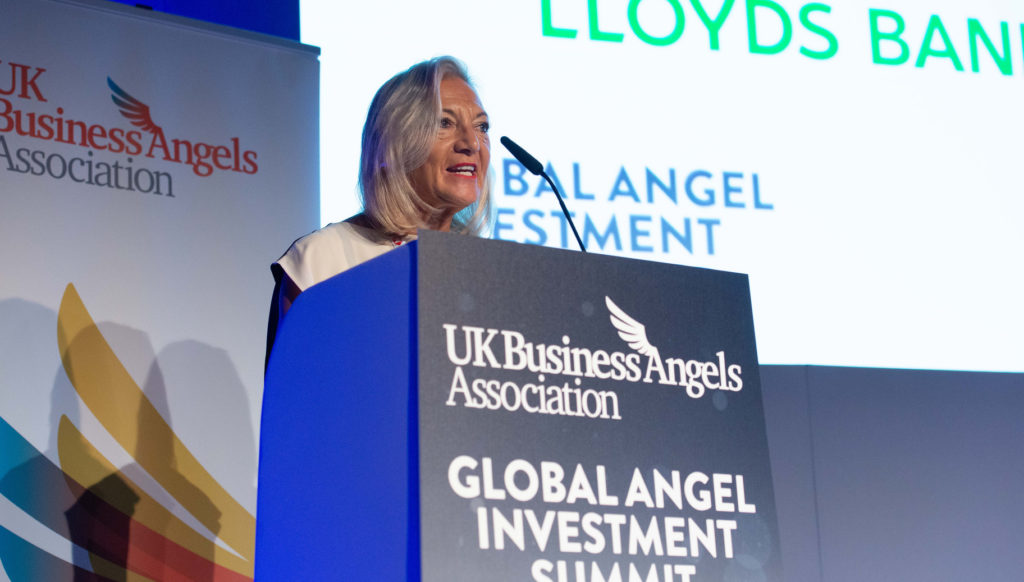The fundamental pillar for economies to prosper, is for their private sectors, such as angel investment, to thrive; and for this to occur, there can be no doubt that the nation’s population of scale-up SMEs offer critical support to the UK’s benchmark business profile.
Cutting across all sectors and regions, there are now more scale-ups in the UK than ever before; the Scale Up Institute found in their 2017 report that between 2013 and 2015 the number of scale-ups rose from 26,985 to 31,440. The same report also highlighted the ambition of scale-up founders – 90 per cent, well over the national business average – expected to continue growing in the next year.
Providing finance to SMEs
The key to meeting those growth ambitions however, is securing the right type of finance to match the expansion timeline of the business.
According to the report, four in ten scale-up leaders do not feel they have the right amount of bank and equity finance in place to match their ambitions. A further quarter expressed reservations about future financing, citing their lack of knowledge as a hindering factor. There are many sources of finance within the investment landscape open to SMEs, from bank loans and venture debt to public and private grants, that can significantly alter their growth trajectory.
Who are angel investors?
One of the largest sources of funding for high-growth small businesses are angel investors. Angel investors are high net worth individuals who make use of their own personal disposable finance, performing their own due diligence on the companies they invest in to. Angel investors often represent more than just a source of finance. Many business angels are alumni of the sectors they invest into, or are successful entrepreneurs who themselves subsequently sold their business, meaning that they bring with them an incredible amount of insight and knowledge. This can prove just as valuable as the financial gain of angel support to any business leader looking to navigate the equity landscape.
Supported by new research from the British Business Bank – released to coincide with the International Business Festival in Liverpool – the data found that many angels provide additional support by getting actively involved in the business – for example, by providing strategic advice (76 per cent) or a sounding board (68 per cent) – and helping businesses to access further investment rounds.
See also: 20 angel investor networks you should know about
Business mentoring also available
With the role of an angel investor encompassing a multitude of support functions from mentoring and guidance through to expansion and finance, there is no one right path to securing the correct type of angel support.
Too many scale-ups focus too much on the detail of the technology, product or service, rather than on presenting the business opportunity and why they need the money to grow their business.
When pitching to investors, business leaders need to make sure they tell their story clearly – who they are and why they have set up this company. Angels want to know the challenge that is being addressed in the market or society, whether proper market research has been done to show why the project meets a real, scalable need, and whether it can bring something new or disruptive to a wider market. Angels also want to know how business leaders plan to expand revenue generation, as well as being sure that the business model can be scaled further.
>See more:
- How to secure angel investment: Javad Marandi
- Angel CoFund: 5 years of investment
- LabMinds raises £2.1m through joint crowdfunding and Angel Co-Fund investment
This approach was the theme of one of the panel sessions at the UK Business Angels Association’s recent Global Investment Summit in Liverpool this week in the context of the International Business festival and which attracts over 30,000 industry and investment professionals. The panellists — comprised of leading angel investors — were able to focus on how scale-ups can better access funding from angel investors, as well as how angel investors can better support scale-ups.
To further encourage more angel investors across the UK, the British Business Bank has established a new commercial investment programme to support developing clusters of business angels outside London. Alongside its existing programmes, the Bank is providing new co-investment funds to leverage regional angel groups. It is expected that this new initiative will help increase the effectiveness of the UK’s business angel finance ecosystem, making it more accessible for entrepreneurs across the regions.

Powering scale up companies
Sourcing scale-up funding from angel investors is not a new concept; many successful entities that are now key growth engines for the UK private sector have succeeded because of the investment and experience they received from the angel community.
One such entrepreneur, Kim Nilsson of Pivigo, was recently named as the Best Investment in a High Growth Female Founder at the UK Business Angels Association annual awards. Kim’s business addresses the important need to build a pipeline of data scientists to meet the growing demand for skilled talent to take advantage of the opportunity to exploit big data, offering training and a recruitment marketplace. Kim has repeatedly accessed Angel funding in order to build the successful scale-up that Pivigo is today.
Similarly, VChain, a female-led business that is disrupting the aviation security market by improving passenger security data through the use of blockchain and machine learning technologies, won Best Investment in Disruptive Tech and had a similar growth story, with Angel funding proving crucial to their expansion.
While business angel funding is not a cure all, the experience, guidance and finance that angels bring with them can significantly shift the trajectory of a business as it moves towards scaling up and beyond.
Bolstered with the perfect store of growth finance, ambition, innovation and leadership, scale-up Britain leads the charge for a momentous business landscape, brimming with gold-standard entrepreneurs and innovation. The key is to ensure angel finance and innovation does not sit in plentiful pockets in isolation of each other; engagement between the two hotbeds of activity is of pivotal importance. The key is to ensure a dynamic interaction between angel finance and innovative entrepreneurs with scale-up potential, since the engagement of these two is of pivotal importance here in the UK.
Find out more:
UK Business Angels Association – an important trade body for angel and early stage investing, from seed to series A funding.
Top UK angel networks for your start-up – a comprehensive list of angel investors across the United Kingdom.






